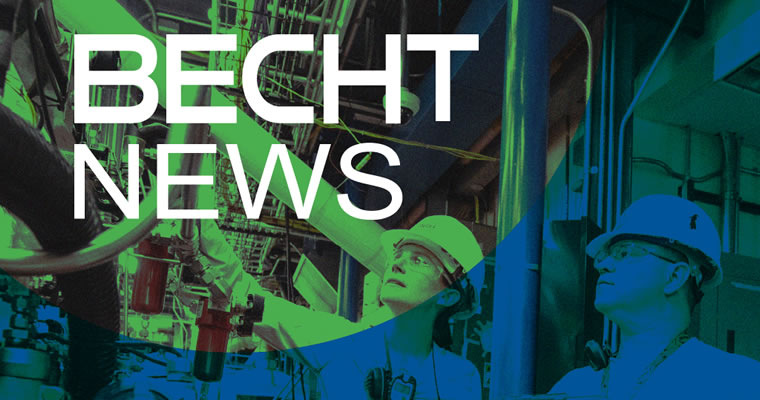Developing A Hydrocarbon Loss Management Culture To Realize Constant Benefits
When you think of your Hydrocarbon Loss Management practice, what comes to mind? Is it tanks, meters, commercial transactions, hydrocarbon accounting tools, the financial close process, or some other related activity? Additional questions might be, what are the benefits that your company derives from your Hydrocarbon Loss Management practice? What goals do you satisfy? What profit impact does it have? What actions are taken as a result of it? This blog will help to provide a mental framework to answer these and other questions that will help you realize the consistent benefits of transforming your organization into a hydrocarbon loss management culture.
Let’s begin with a quick summary of the Hydrocarbon Loss Management Practice which is made up of three critical components:
- Management
- Measurement
- Control
To put it into a simple phrase — “To Manage, you have to Control. To Control, you have to Measure.”
Hydrocarbon Loss MANAGEMENT = MEASUREMENT + CONTROL
Now, let’s cultivate these three components for a better understanding. First, Management is just what it implies: The loss organization structure and roles, the work processes, the work procedures, and the industry standards related to measurement and control. All of these must be “fit for purpose” for your asset and transactional circumstances.
Next, Measurement – this term is also just as it sounds. It is the physical quantity and quality measurement of each hydrocarbon transaction and inventory at actual conditions and compensated/standard conditions, based on industry standards and methods. Measurement also includes the maintenance, testing, and proving of measurement devices and the associated record keeping that provide confidence in the reliability, consistency, and accuracy of these measurements.
Lastly, Control is the function of accounting for all known hydrocarbon transactions/movements within the asset boundary based on standard measurements to perform a reconciliation to identify hydrocarbon losses and/or required measurement maintenance actions. The Control function extends beyond just the accounting function into loss calculations at various places in the hydrocarbon supply/processing chain, tracking and trending those loses over time to determine process health and control, and loss investigation and related improvement actions to eliminate hydrocarbon losses and improve measurement practices and the overall management process.
From these fundamentals, let’s dig into what encourages and makes a profitable and beneficial hydrocarbon loss management practice. Each of the components are the parts that make up the practice but all or any individual one of them does not necessarily guarantee success. More often than not, in most organizations, these components are not balanced in their priority or execution, leading to less than desirable results. The degree of balance is a continuum from single component focus through complete three component balance. The resulting benefits can be correlated along this same continuum, from no/extremely limited to maximum profitable benefits.

How can an organization leverage its hydrocarbon loss management practice for the maximum bottom line benefit? What is the factor that makes the difference? A single word: culture. Culture, at its core, is what is valued and what actions are encouraged. The difference, simply, is developing and fostering a hydrocarbon loss management culture that is focused on executing the practice with a shared vision of minimizing hydrocarbon loss. That sounds simple, but too often it is overlooked, and one particular practice component becomes prioritized with the focus on “a task” robbing the organization of benefits and profits.
To illustrate, let’s consider the most common example of the “benefits thief” in hydrocarbon loss management. I like to call it “accounting thinking”. Let me begin by saying that there is nothing wrong with “accounting”, after all, hydrocarbon accounting is a critical element of the hydrocarbon loss management practice in the Control component. Too often though, the equivalency is established between hydrocarbon accounting and oil loss management, and this is where the thief “breaks in”. From there, this thief begins to create a separation between each of the other components in the practice and the common vision and pursuit of minimizing hydrocarbon loss is gone, replaced by a single focus and culture of supporting financial reporting and corporate accounting.
In order to stop this thief in their tracks, a culture of hydrocarbon loss minimization has to be established. The way this is accomplished is through a deliberate balancing of each of the practice components and recognition of the value that each one brings to realizing the bottom-line benefits. The Management component is the “champion” of this culture and is empowered and driven to accomplish the goal of turning losses into before-unrealized profits through collaborative efforts in best practices, performance, gap identification, gap investigation, and gap improvement within and through the Measurement and Control components. The remaining business demands and requirements from the hydrocarbon loss management practice are customers of its data and information.
What are the benefits, then, of transforming into an organization that has a hydrocarbon loss management culture? We have suggested it is beneficial and profitable, but what are the real tangible benefits of a culture that is focused and committed to minimizing hydrocarbon loss? To state the obvious: even a small loss capture on a percentage basis can have a major impact on business profitability. Identifying and capturing the losses, as small as some may be, monetizes hydrocarbons that previously were not and that directly impacts the “bottom line”. Loss minimization also contributes to more profitable and healthy commercial relationships by avoiding payment to suppliers in excess, invoicing customers in defect, and strong support for dispute resolution when it occurs. Let’s not forget that there are also legal benefits related to government tax and regulatory requirements as well as simply the discipline of knowing where hydrocarbon molecules are and increasing processing efficiency and performance by reducing physical losses. When Management, Measurement and Control are balanced appropriately, fostering a culture of oil loss minimization results in maximum benefits.
As you consider your hydrocarbon loss management practice, where are you on the continuum of practice balance and benefits? Have you been “robbed” of the benefits of a healthy and balanced hydrocarbon loss management practice? If so, begin by yelling “stop thief” and begin to introduce, educate, and implement the culture of hydrocarbon loss minimization. Developing this culture requires a great deal of effort, commitment, as well as expertise ranging from organizational aspects like roles and responsibilities, proper process and procedures, industry standards, tools and their functions, loss tracking and reporting and development of a roadmap to get from where you’re at now to where you want to be. Becht has international experience in helping develop the tactical as well as the organizational aspects of developing a hydrocarbon loss management culture that realize real benefits.
If you would like to discuss this topic further, please contact us by clicking below:




